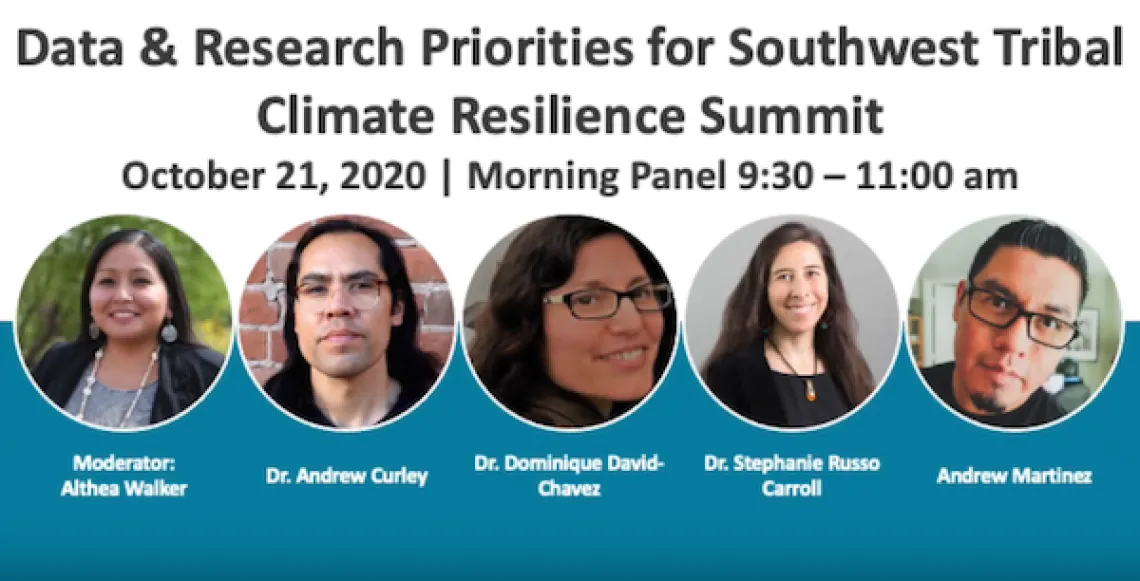Indigenous Scholars Discuss Climate Change, COVID-19, Data & Research Priorities in the Southwest

On October 21, 2020, the Data & Research Priorities for Southwest Tribal Climate Resilience Summit was convened with two speaker panels featuring Indigenous scholars and community members from Southwest Native nations and moderated by Althea Walker (Akimel O’otham). The morning panel featured Dr. Andrew Curley (Dińe), an Assistant Professor at the University of Arizona School of Geography, Development & Environment, and NNI staff Andrew Martinez (O’odham, Diegueño, and Yoeme), Dr. Stephanie Russo Carroll (Ahtna), Dr. Dominique David-Chavez (Arawak Taíno). The presenters provided an overview of the issues of COVID-19 and its impact on Indigenous data sovereignty and governance. David-Chavez spoke about the role of community in research projects, shifting from contractual engagement of Indigenous communities to a more collaborative and collegial partnership. She highlighted the need to shift from the “colonial research era” to an Indigenous focused agenda.
“I think when we talk about climate change in times of the pandemic, I think we really need to center the discussion or always include that it’s a human induced climate change. When we put that human induced climate change… that’s really what it is. It’s reflecting on us as a society, on how these relational responsibilities that we have to each other and society… and how the respectful relationships have almost been forgotten. We need to recenter those value systems, those core values in a lot of these systems in which we operate” – Dr. Carrie Joseph
In the afternoon, the summit attendees heard from Dr. Carrie Joseph (Hopi), Phoebe Suina (Cochiti Pueblo and San Felipe Pueblo), and Dr. Franklin Sage (Dińe). Each of the panelists works directly with their communities in Arizona and New Mexico. Some of the panelists have taken on new roles in response to COVID-19, and all have had to adjust their work around climate issues due to the impact of COVID-19 on their communities. The conversation shed light on how tribal governments have adapted following a full shutdown of their operations, including methods for communicating COVID-19 information to their community members. The speakers touched on how tribal-state relations have been impacted and expanded. These firsthand accounts provided attendees with a broad scope of how Native nation leaders and community members are dealing with COVID-19 and climate issues.
“We didn’t know what we didn’t know… Early on as I worked with the Indian Affairs Office, the Governor’s Office as well as the All Pueblo Council of Governors, how do we get this information out to our tribal communities… when we are uncertain about a lot?” – Phoebe Suina
“Those local initial efforts led to facilitating those data sharing agreements…, how we need to start forming these data sharing agreements so that this information from these regional hospitals are communicated to the direct entities in which, us the village community level where we can advocate for ourselves and protect ourselves...” – Dr. Carrie Joseph

